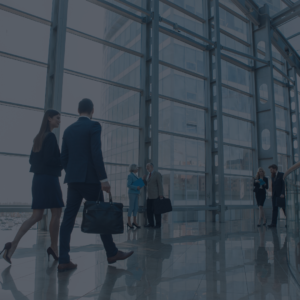What Will Be the New Normal as Lawyers Return to Their Offices?
Thu, May 28th, 2020 | by Miles Mediation and Arbitration | Article | Social Share
 There is a “best time of the year” to be in the legal profession. The holiday season always seems to bring good cheer, civility in previously contentious proceedings, a willingness to resolve matters, greater tolerance of legal accommodations; whether requests for filing extensions, discovery requests or other so-called favors which in reality are simply how we should always be conducting ourselves.
There is a “best time of the year” to be in the legal profession. The holiday season always seems to bring good cheer, civility in previously contentious proceedings, a willingness to resolve matters, greater tolerance of legal accommodations; whether requests for filing extensions, discovery requests or other so-called favors which in reality are simply how we should always be conducting ourselves.
Whether that is because at that time of year we are more focused on what is important to us and our families or simply because we encounter lawyers who seem generally nicer than how we had perceived them to be a few weeks earlier. Equally, it could simply that we have a greater appreciation that the courts will be closing for the holiday and slow to reopen in the New Year, and that a hostile and combative approach is unlikely to garner any favors from judges who themselves are looking forward to the upcoming holiday season. Whatever the reason, the holiday period is always refreshing and enjoyable.
Sometime in the middle of January the old grudges and arguments can return but, for a few brief weeks, cooperation breaks out in the most acrimonious cases and, despite this, progress can be made.
While the current suspension of usual hostilities brought on by the pandemic and the closure of the courts has not, to the best of my knowledge, led to impromptu (virtual) soccer games breaking out between rival firms, it is fair to say that generally everyone seems nicer and more willing to work towards solutions. There is a collective understanding that we all face the same risks which has given rise to a litigation environment not dissimilar to that experienced in the holiday season. In addition, clients` needs have come into sharper focus, enabling lawyers to more easily concentrate on the critical issues involved in their cases.
So how long will this rapprochement last, now that law firms are slowly returning to physical offices and the court system is starting to reopen? Plaintiffs’ claims which have been put on hold may be more pressing and their clients` needs may be greater than they were before. The relative strengths of parties in litigation may have been materially affected and damages calculations, previously certain, have variables not previously contemplated. Defendants seeking to pay less than value will need to balance perceived opportunity with the court of public opinion and potential sanction should they be seen by a jury to be delaying resolution or trying to take advantage. Ultimately, both parties will have to come up with a solution that is reasonable. Reasonableness is harder to define and to assess today, whether in dollar terms or actions taken. Despite this, with cooperation between the parties, it may prove easier to achieve given current attitudes, and willingness by both parties` lawyers to achieve a solution to the current limitations of the legal system, which are likely to linger longer than the opening of physical offices and the acceptance by the court of new filings.
Many commentators have made predictions anticipating waves of litigation, legislative bodies are weighing in on who should pay and for what, and the only certainty is that no one knows exactly how this will all develop. In this environment, clients (both corporate and individuals) are looking for a better way to resolve their cases, without the acrimony that may have marred prior disputes and without the length of time and expense required to conclude most cases.
The new normal is therefore likely to reward those lawyers who adopt an innovative, proactive and reasonable approach, as clients look for alternatives that lead to solutions over confrontation. Already we can see changes to how discovery is being conducted with many firms utilizing IT solutions to gather initial information. Law firms have been exploring the use of AI to undertake tasks previously handled and charged using an hourly rate, the need for large offices, and by extension the rational for large overheads has been brought into question. Many see some form of remote working remaining after a return to the office and virtual mediations and arbitrations are also likely to remain part of the new normal, as less attorneys and clients want to travel. Those lawyers that adapt and embrace these changes, and seek efficiencies in their businesses, will no doubt benefit as they alter their business models to evolving technology and clients` changing needs. In this rush to efficiency, it is worth remembering that the changes brought about by the pandemic will require the human characteristics of reasonableness and cooperation to unlock benefits for the clients.
ABOUT NIGEL WRIGHT

As a mediator and arbitrator at Miles, Nigel Wright handles extensive personal injury claims in disputes in over 50 countries and complex claims (including class actions) for A&H, Aviation, Casualty, Commercial Property, Construction defect, Crisis Management, Cybersecurity, D&O, E&O, Energy and Marine, Environmental, Financial Lines, Insurance coverage, IP, Pharma, Product defect, Professional Liability, Political Risk, and Surety.

